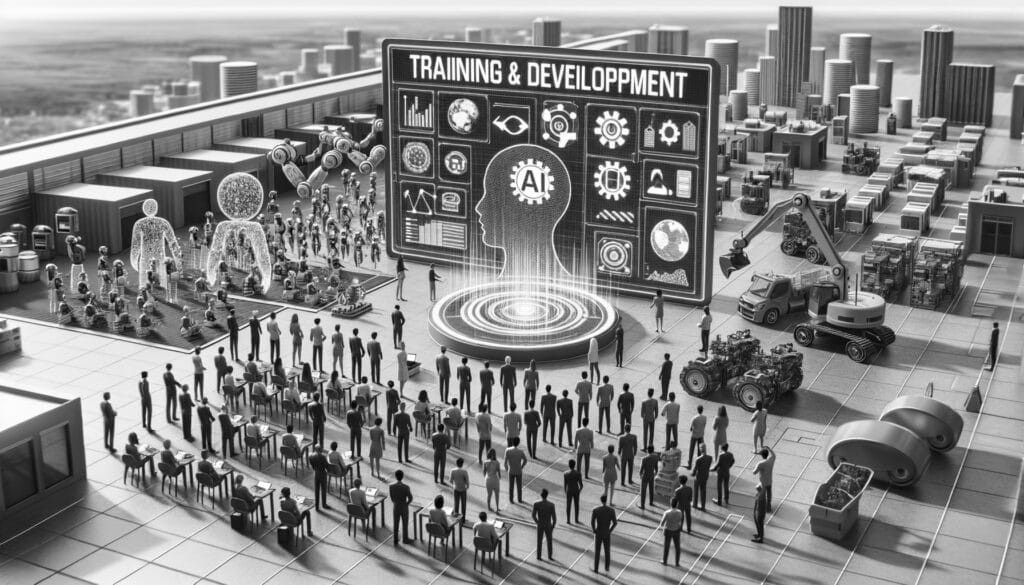New launch prices for a limited time

The way to effectively integrate artificial intelligence in small businesses
A practical guide for business owners
The way to effectively integrate artificial intelligence in small businesses – Artificial intelligence (AI) is no longer a concept limited to the domain of large corporations or science fiction movies.
Today, even small businesses are harnessing the power of artificial intelligence to streamline operations, improve customer experience and drive growth.
Understanding the role of artificial intelligence in small businesses
Integrating AI into small businesses has become a necessity rather than an option, given the competitive business environment. Small businesses can leverage AI technologies in different ways. For example, they can use machine learning algorithms for predictive analytics to predict market trends or consumer behavior. This helps them make data-driven decisions and stay ahead of the curve.
AI-based chatbots are another great example of AI for business. These virtual assistants can handle customer inquiries 24/7, improving customer service while freeing up human resources for more complex tasks. Furthermore, AI-powered automation tools can help small businesses optimize their operational efficiency by automating repetitive tasks like scheduling, invoicing or email marketing. In addition, AI can help reduce risk and improve security.

Identifying the right artificial intelligence tools for your business
Artificial intelligence (AI) is no longer a futuristic concept, it has become an integral part of today’s business landscape. Whether you run a multinational corporation or a small local organization, AI tools can significantly improve your operational efficiency, decision-making processes, and customer interactions. However, identifying the right AI tools for your business can be quite challenging due to the plethora of options available.
Artificial intelligence for business comes in many forms, from chatbots that handle customer service inquiries to predictive analytics software that predicts sales trends. The key is to identify which aspects of your business can make the most of integrating AI. For example, if you struggle with data analysis, an AI tool that specializes in big data might be what you need. Next on the list is understanding your budget constraints.
That doesn’t mean small businesses can’t leverage the power of AI. There are many affordable yet effective AI tools designed specifically for small businesses. Despite the initial cost and potential learning curve associated with integrating AI into small businesses, the long-term benefits often outweigh these challenges.
The way to effectively integrate artificial intelligence in small businesses

Training and development to integrate artificial intelligence
Artificial Intelligence (AI) has emerged as a game changer in the modern business world, revolutionizing various industry sectors with its transformative potential. As we move towards an increasingly digital economy, incorporating AI into businesses – both large and small – is not just a trend but a necessity.
Training and development to integrate artificial intelligence is essential to exploiting the full potential of this technology. This involves preparing the organization’s human resources and infrastructure to work seamlessly with AI tools and solutions. This process includes imparting necessary skills, knowledge and attitudes required to interact effectively with AI systems.
Small businesses stand to benefit significantly from integrating AI. With limited resources compared to larger corporations, small businesses can leverage AI tools for tasks such as data analysis, customer service automation, market research, etc., thereby saving time and costs while improving productivity and efficiency. However, successfully integrating AI into small businesses requires careful planning and execution.
Measuring the impact of artificial intelligence on business performance
Artificial Intelligence (AI) has become a game changer in the business world, revolutionizing operations and driving unprecedented growth. The impact of AI on business performance is measurable and profound, with companies in various industries harnessing its power to streamline processes, improve customer experience and ultimately improve their bottom line.
A study conducted by the McKinsey Global Institute found that businesses implementing AI saw a nearly 50% increase in profit margins. This highlights the transformative potential of AI for business. However, measuring this impact requires more than just looking at financial metrics, it also includes assessing improvements in operational efficiency, customer satisfaction and overall market position. One of the ways to understand the impact of artificial intelligence is through the “Unicorn AI” phenomenon. It is a unique platform that allows both large and small business owners to promote and market their businesses independently and save a lot of money and resources for the business. Unicorn shows how AI can drive innovation and profitability at massive scale. However, not only large corporations or high-value startups can benefit from artificial intelligence, small businesses will also benefit significantly from integrating this technology into their operations.

Overcoming challenges in AI adoption
Artificial Intelligence (AI) has rapidly evolved as a transformative technology that is reshaping the way businesses operate. However, despite the potential benefits, many organizations face significant challenges in adopting AI.
These obstacles range from a lack of technical expertise and high implementation costs to data privacy concerns and regulatory issues. One of the main obstacles for businesses, especially small ones, is the lack of resources needed to integrate AI. Small businesses often struggle with limited budgets and a lack of access to high-quality data or advanced hardware.
This gap can lead to a competitive disadvantage in an increasingly data-driven market. To overcome these challenges, small businesses need to adopt a strategic approach towards implementing AI.
First, they should identify specific business problems that AI can effectively solve and focus on those areas initially rather than attempting a broad implementation of AI across all operations. Second, they should consider partnering with outside experts or vendors who can provide the necessary technical support and training.
In addition, leveraging cloud-based AI solutions can help reduce upfront costs associated with hardware and software purchases. Cloud platforms offer scalable computing power and storage capacity that allow businesses to experiment with different artificial intelligence models without making significant investments.

The future prospects of AI in small business
The future of small business is about to be revolutionized by the incorporation of artificial intelligence (AI). The advent of artificial intelligence has opened up a wealth of opportunities for businesses, allowing them to optimize operations, improve the customer experience and ultimately increase profitability. As we move further into the digital age, it is clear that AI is no longer just a luxury for large corporations, but an essential tool for businesses of all sizes.
Unicorn AI, one of the pioneers in their field, improves business processes, saves small business owners and invents new business practices combined with artificial intelligence, Unicorn paves the way for small businesses to leverage AI in new and exciting ways. They demonstrate how AI can drive growth and competitiveness even in a saturated market.
For small businesses specifically, integrating AI can take many forms – from chatbots that provide 24/7 customer support, to smart systems that optimize supply chain management or predictive analytics that improve decision-making processes.
Whether it’s through improving efficiency or creating personalized experiences for customers, artificial intelligence has the ability to transform small business operations. Furthermore, as AI becomes more accessible and affordable, it will become more and more ingrained in everyday business practices.








